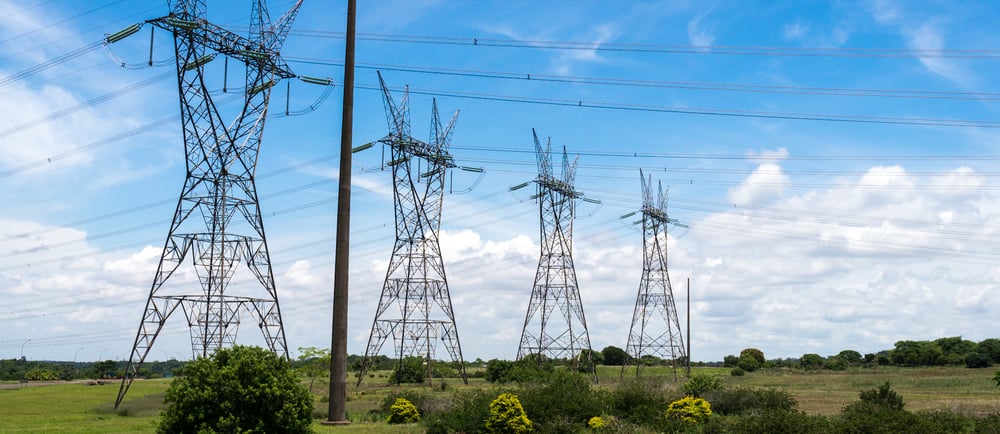Brazil's Regulatory Environment and the Development of Renewable Energy
Brazil, a global leader in renewable energy, generates the majority of its electricity from renewable sources, but its energy policies have fluctuated with changing political leadership. Can Brazil sustain its progress in renewable energy amidst these political shifts, and will foreign investors find the necessary stability to invest in its market?
BRAZIL
Raymond Puentes
8/6/20243 min read


As the largest electricity market in Latin America and the seventh largest globally, Brazil is notable for its significant contributions to renewable energy within its power grid. An impressive 83% of Brazil's electricity comes from renewable sources, far surpassing the global average of 25%. Brazil is also the second-largest producer of biofuels and hydropower in the world, and it ranks eighth globally in terms of installed wind power capacity. However, despite these achievements, the development of renewable energy projects in Brazil is heavily influenced by the country's political landscape and regulatory environment, which have presented both opportunities and challenges.
Brazil’s journey towards renewable energy prominence began with several key policy initiatives. In 2002, Brazil launched the PROINFA programme, a regulatory system designed to encourage participation in the electricity generation sector. PROINFA played a pivotal role in promoting wind, biomass, and small hydroelectric power plants, significantly boosting the country's renewable energy capacity by attracting substantial investments.
Building on this foundation, President Dilma Rousseff, during her tenure from 2011 to 2016, elevated the renewable energy sector by enhancing financial support and incentives for clean energy projects. Her administration continued to support and expand upon the successes of PROINFA by implementing additional measures, such as renewable energy auctions and investments in infrastructure. These initiatives further solidified Brazil's position as a global leader in renewable energy.
However, the transition from President Rousseff to President Jair Bolsonaro in 2019 brought considerable changes to Brazil's energy policies. Bolsonaro's administration shifted focus towards traditional energy sectors, such as oil and gas, at the expense of renewable energy development. This shift raised significant environmental concerns, particularly given Brazil's status as the sixth-largest emitter of greenhouse gases globally. Despite Brazil’s commitment under the Paris Agreement to reduce greenhouse gas emissions by 37% by 2025, Bolsonaro's administration appeared to deprioritise environmental protection. Consequently, this created uncertainty among investors and developers, hindering the planning and execution of long-term renewable energy projects, particularly in wind and solar energy.
Following Bolsonaro's presidency, Brazil's renewable energy landscape experienced further changes as the country sought to recalibrate its energy policies and renew its commitment to the development of renewable energy sectors. The new administration introduced revised energy policies aimed at fostering renewable energy projects through incentives designed to attract investment in wind, solar, and other renewable sources. These clear and supportive policies restored confidence among both domestic and foreign investors and bolstered environmental protections. Additionally, Brazil strengthened its international partnerships, notably with the World Bank, and enhanced environmental regulations in sensitive areas such as the Amazon, which improved the country's global standing.
For foreign businesses, these developments present both opportunities and challenges, particularly for industries directly involved in renewable energy, such as wind and solar technology, biofuel production, and sustainable infrastructure development. Companies from these sectors, especially those based in Europe, the United States, and Asia, have the potential to capitalise on Brazil's growing renewable energy market by investing in new projects or forming partnerships with local entities. Additionally, sectors such as finance, engineering, and environmental consultancy stand to benefit from the demand for expertise in planning, financing, and implementing large-scale renewable projects. However, the fluctuating political environment and regulatory changes in Brazil also necessitate careful navigation of the market, as policy shifts can impact long-term investments. Nonetheless, with the current administration’s commitment to sustainability and international collaboration, foreign businesses in renewable energy and related industries are well-positioned to thrive in Brazil's evolving energy landscape.
As a result, the renewable energy sector in Brazil experienced a resurgence, particularly in wind and solar energy projects. This revival not only contributed to a more diverse and sustainable energy mix but also generated significant economic and social benefits, including job creation and improved energy access for communities. Furthermore, the Brazilian government developed long-term strategies for sustainable energy, aligning with global climate goals and committing to the reduction of greenhouse gas emissions. Overall, the renewed support for renewable energy during this period positively impacted business investments and reinforced Brazil's commitment to sustainability.


